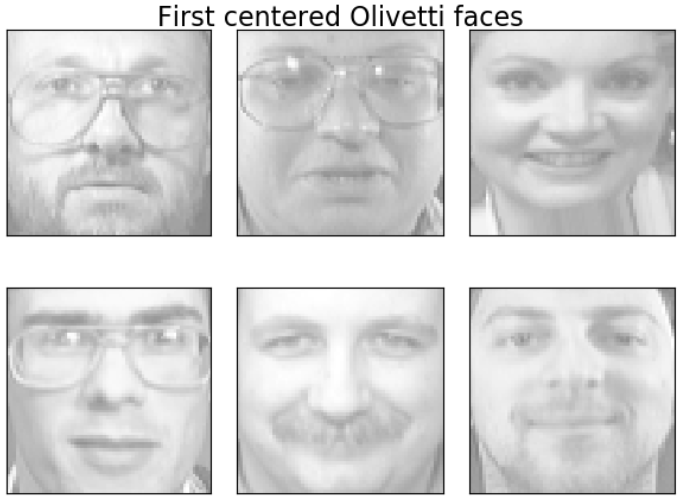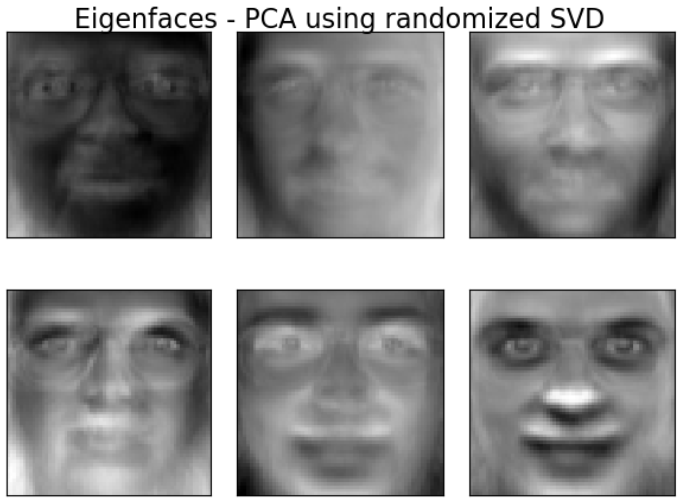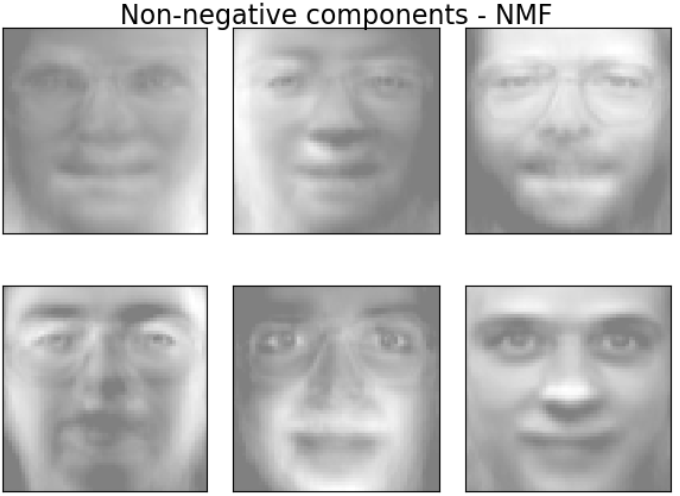非负矩阵分解的定义及理解
「摘自《迁移学习》K-Means算法&非负矩阵三因子分解(NMTF)」

下图可帮助理解:



举个简单的人脸重构例子:
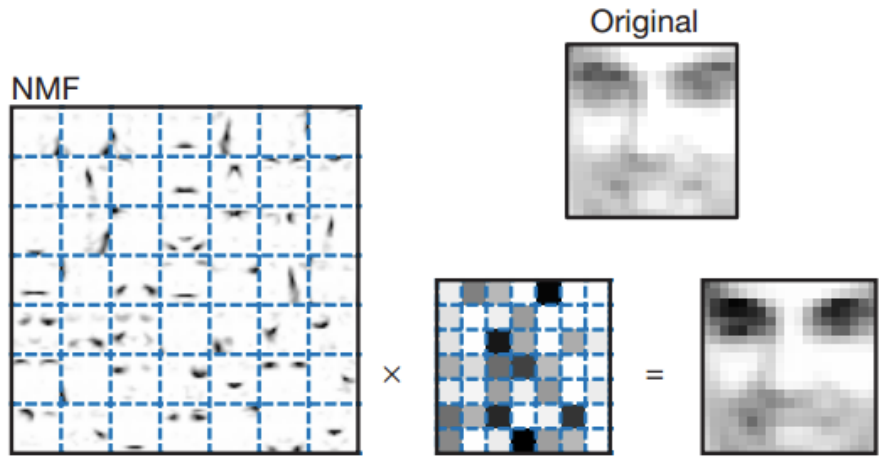
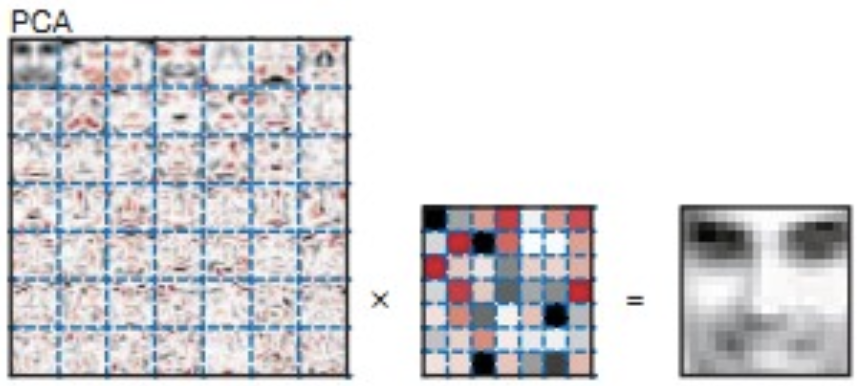

Python实例:用非负矩阵分解提取人脸特征
「摘自Python机器学习应用」
在sklearn库中,可以使用sklearn.decomposition.NMF加载NMF算法,主要参数有:
- n_components:指定分解后基向量矩阵W的基向量个数k
- init:W矩阵和Z矩阵的初始化方式,默认为‘nndsvdar’
目标:已知Olivetti人脸数据共400个,每个数据是64*64大小。由于NMF分解得到的W矩阵相当于从原始矩阵中提取的特征,那么就可以使用NMF对400个人脸数据进行特征提取。
程序如下:
from numpy.random import RandomState
import matplotlib.pyplot as plt
from sklearn.datasets import fetch_olivetti_faces #加载Olivetti人脸数据集导入函数
from sklearn import decomposition
n_row, n_col = 2, 3
n_components = n_row * n_col #设置提取的特征的数目
image_shape = (64, 64) #设置展示时人脸数据图片的大小
dataset = fetch_olivetti_faces(shuffle=True, random_state=RandomState(0))
faces = dataset.data
def plot_gallery(title, images, n_col=n_col, n_row=n_row):
plt.figure(figsize=(2. * n_col, 2.26 * n_row))
plt.suptitle(title, size=16)
for i, comp in enumerate(images):
plt.subplot(n_row, n_col, i + 1)
vmax = max(comp.max(), -comp.min())
plt.imshow(comp.reshape(image_shape), cmap=plt.cm.gray,
interpolation='nearest', vmin=-vmax, vmax=vmax)
plt.xticks(())
plt.yticks(())
plt.subplots_adjust(0.01, 0.05, 0.99, 0.94, 0.04, 0.)
plot_gallery("First centered Olivetti faces", faces[:n_components])
estimators = [('Eigenfaces - PCA using randomized SVD', decomposition.PCA(n_components=n_components, whiten=True)),
('Non-negative components - NMF', decomposition.NMF(n_components=n_components, init='nndsvda', tol=5e-3))]
for name, estimator in estimators:
print("Extracting the top %d %s..." % (n_components, name))
print(faces.shape)
estimator.fit(faces) #调用PCA或NMF提取特征
components_ = estimator.components_ #获取提取的特征
plot_gallery(name, components_[:n_components])
plt.show()
运行结果:
Extracting the top 6 Eigenfaces - PCA using randomized SVD...
(400, 4096)
Extracting the top 6 Non-negative components - NMF...
(400, 4096)
